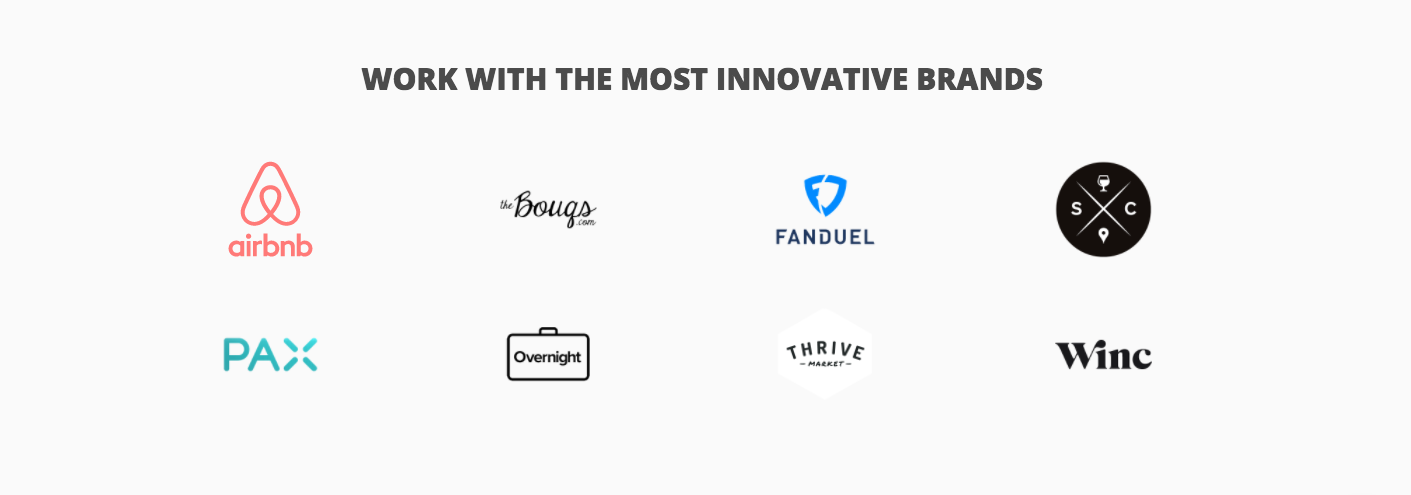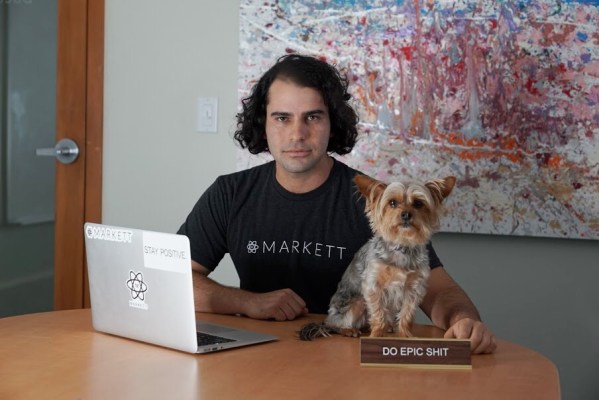Franky Bernstein loves startups. His latest company, Markett, is born out of that love, and his innate desire to share tips about those innovative new startup companies with the wider world.
The 24-year-old serial entrepreneur first was bitten by the entrepreneurial bug while attending Loyola Marymount University, where, as a representative in student government, he began looking for a way to cut down on drinking and driving among the student body.
He found Uber. The ride-hailing service embraced the idea of a promotional deal for LMU students and Bernstein became a commission-based ambassador for the student body.
From there, Bernstein expanded his network, building a team of student ambassadors for the company’s ride-sharing app that were making hundreds — then thousands — of dollars per week.
That exposure led to the creation of Markett, Bernstein’s latest venture that connects everyday users with brands and gives them a way to make money by shilling for the companies they love.
After working with Uber, Bernstein reached out to Lyft and talked to Josh Renfro, the director of business development there. Working with Renfro, while still a student, Bernstein helped train thousands of brand ambassadors nationwide — and even converted several Lyft drivers into brand advocates.
“Working with Uber and Lyft planted the seed of entrepreneurship,” says Bernstein.
Indeed, Bernstein was so inspired by his brush with the startup world that he launched his own company. Bernstein’s first foray into the wild world of startup businesses was Interwallet (now called Maya), a bill-pay kiosk network for the underbanked.
Now, with Los Angeles-based Markett, Bernstein wants to give everyone the same opportunity he had — the ability to make money talking up the new startup services that they love.
We want to be the largest marketing company in the world that doesn’t spend any money on marketing. Franky Bernstein, chief executive, Markett
“Being able to work with Uber and Lyft isn’t easy to do, and I want to provide more access to that,” says Bernstein. Beyond that, Bernstein wants people to be able to make money talking about the products they love and give brands an opportunity to achieve more of a direct relationship with their customers.
To achieve that vision the company has raised roughly $2 million in venture financing from investors, including KEC Ventures, Amplify.LA, Luma Launch, Wavemaker VC, Tiller Partners, Building Blocks, and angel investors like Jamie Patricof, Michael Kane, Joseph Varet, Varun Pathria and John St. Thomas.
With the company’s launch, ambassadors can sign up to work with venture-backed companies like Airbnb, ThriveMarket, FanDuel, The Bouqs, Zeel and Winc.

Bernstein chose those companies because of their approach to their customers and their willingness to reward their brand ambassadors.
“Every consumer brand wants to increase word-of-mouth marketing and explore alternative marketing channels to Facebook and Google,” Bernstein wrote in an email. “Markett is seeking to redistribute a piece of these brands’ ad budgets and put it into the pockets of their loyal customers.”
Markett isn’t the first company to try this approach. A company called BzzAgent launched in 2001 to bring brand ambassadorship to the masses. The company, which raised around $14 million in venture funding, was acquired in 2011 for around $60 million.
The legacy of the viral marketing campaign remains… but for Bernstein it’s not about marketing… it’s about truly connecting power users to the companies they love, and having those companies reward their everyday spokespeople for the work they’re doing.
To ensure that he achieves this vision, Bernstein has committed to giving nearly 100 percent of the marketing budgets that Markett’s partners spend on the program to the Markett marketers. Any profits are dedicated to bonuses, Bernstein tells me. Eventually, the company intends to take a cut of every transaction.
“We want to be the largest marketing company in the world that doesn’t spend any money on marketing,” Bernstein says.
